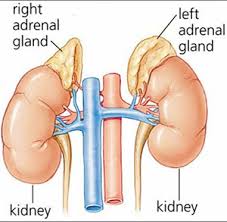- Home
- Editorial
- News
- Practice Guidelines
- Anesthesiology Guidelines
- Cancer Guidelines
- Cardiac Sciences Guidelines
- Critical Care Guidelines
- Dentistry Guidelines
- Dermatology Guidelines
- Diabetes and Endo Guidelines
- Diagnostics Guidelines
- ENT Guidelines
- Featured Practice Guidelines
- Gastroenterology Guidelines
- Geriatrics Guidelines
- Medicine Guidelines
- Nephrology Guidelines
- Neurosciences Guidelines
- Obs and Gynae Guidelines
- Ophthalmology Guidelines
- Orthopaedics Guidelines
- Paediatrics Guidelines
- Psychiatry Guidelines
- Pulmonology Guidelines
- Radiology Guidelines
- Surgery Guidelines
- Urology Guidelines
Congenital Adrenal Hyperplasia Guideline by The Endocrine Society

The Endocrine Society has issued a Clinical Practice Guideline for Congenital Adrenal Hyperplasia Guideline that is an update of the Society’s 2010 Guideline. It offers best practices for healthcare providers on how to promptly diagnose, treat, and manage patients with congenital adrenal hyperplasia (CAH), an inherited endocrine disorder, throughout their entire lives.
It will appear in the October 2018 print issue of The Journal of Clinical Endocrinology & Metabolism (JCEM), a publication of the Endocrine Society.
Main differences between the 2010 and 2018 guidelines:
- Reflects newer published data and prospects of advances in diagnosis and treatments
- Emphasizes shared decision making among congenital adrenal hyperplasia patients, their families, and healthcare professionals when it comes to the medical, surgical, and psychological management of the disorder
- Includes more detailed protocols for adults, especially pregnant women
- Discusses potential new therapies and future ways to improve quality of life for individuals with congenital adrenal hyperplasia
Congenital adrenal hyperplasia (CAH) is an inherited genetic disorder in which the adrenal glands, which make essential hormones for body functions, do not function properly. Classic CAH, which is common enough that it is screened shortly after birth in many countries, may cause life-threatening episodes of shock due to salt-wasting and dehydration. Female infants are usually diagnosed at birth because they have ambiguous genitalia (external sex organs that resemble male genitals). However, they still have normal internal female organs (ovaries and uterus). A male infant with classic CAH usually appears normal at birth, although he may show signs of early puberty.
Non-classic CAH is a milder and more common form of the disorder that may not appear until childhood or adulthood. Symptoms can include early pubic hair growth and acne, masculine characteristics, and infertility. With proper care, people with either type of CAH can live long and healthy lives.
“The management of CAH requires a multi-disciplinary team of experienced healthcare personnel who integrate the endocrine, genetic, gyneco-urologic, reproductive, and mental health aspects of care,” said Phyllis W. Speiser, M.D., of the Cohen Children’s Medical Center of New York, Northwell Health, and the Zucker Hofstra School of Medicine in New York. Speiser chaired the writing committee that developed the guideline. “Our new guideline stresses the importance of shared decision making between healthcare professionals, patients, and their families when it comes to treatment and the need for ongoing care.”
Key Recommendations from the guideline include:
- All newborn screening programs should incorporate screening for CAH, and infants with positive screens should be referred to pediatric endocrinologists.
- Prenatal therapy for CAH should be avoided (except as part of ethically-approved protocols) due to incompletely defined postnatal risks.
- Healthcare professionals should inform all parents of pediatric patients with CAH (particularly girls with ambiguous genitalia) about surgical options, including delaying surgery until the child is older.
- All surgical decisions for minors should be the prerogative of families (i.e., parents with assent from older children) in joint decision making with experienced surgical consultants.
- Adolescents with CAH should start the transition to adult care several years prior to dismissal from pediatric endocrinology to ensure the continuation of care throughout their entire life.
- Growing individuals with classic CAH should receive maintenance therapy with hydrocortisone and should avoid chronic use of more potent or long-acting glucocorticoids, which can have adverse side effects.
- Patients with CAH (and parents of minors) should seek mental health treatment to address any CAH-related psychosocial problems.
The Society established the Clinical Practice Guideline Program to provide endocrinologists and other clinicians with evidence-based recommendations in the diagnosis, treatment, and management of endocrine-related conditions. Each guideline is created by a writing committee of topic-related experts in the field which rely on evidence-based reviews of the literature in the development of guideline recommendations.

Disclaimer: This site is primarily intended for healthcare professionals. Any content/information on this website does not replace the advice of medical and/or health professionals and should not be construed as medical/diagnostic advice/endorsement or prescription. Use of this site is subject to our terms of use, privacy policy, advertisement policy. © 2020 Minerva Medical Treatment Pvt Ltd